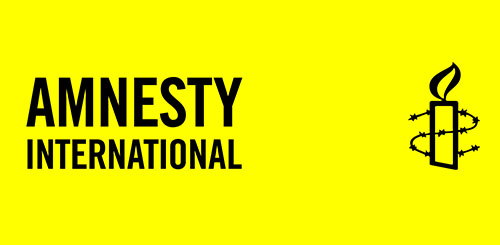Following the European Commission’s new infringement proceedings against Hungary for breaches of EU law ahead of a parliamentary vote on repressive new laws in the country, Iverna McGowan, Director of Amnesty International’s European Institutions Office, said:
“Hungary’s attempts to prohibit the legitimate and vital work of people and civil society organizations working to protect the rights of migrants and asylum-seekers is unacceptable.
“By challenging a legislative package that flagrantly breached EU human rights law, the European Commission has sent a clear and unambiguous message that Hungary’s xenophobic policies will not be tolerated.
“European leaders who have remained largely silent over the human rights crackdown in Hungary must now follow the Commission’s lead and call for these laws to be shelved.
“With new restrictions on freedom of expression and assembly also on track for adoption by the Hungarian parliament tomorrow, it is more important than ever to challenge the Hungarian government loudly and clearly.”
Background
The new infringement procedure by the European Commission concerns a package of xenophobic measures that came into effect in Hungary on 1 July 2018.
Under these laws people providing assistance to asylum seekers and migrants, including lawyers and international and non-governmental organisations (NGOs), can have their access restricted to asylum-processing areas and may even face criminal proceedings if they facilitate claims that are unsuccessful.
The measures make it impossible for people who passed through another country before arriving in Hungary claim asylum.
The European Commission today found these measures to be in violation of the Union’s Asylum Procedures, Reception Conditions and Qualifications Directives and of the right to asylum. It also pointed out inconsistencies with the EU’s provisions on the free movement of Union citizens and their family members.
Hungary’s policies and practices on refugees, asylum seekers and migrants cause unnecessary human suffering, while the government has increasingly sought to silence critical voices.
Tomorrow the Hungarian parliament is expected to adopt a series of repressive legislative amendments, including the introduction of a special tax which could leave NGOs deemed to be ’supporting migration’ without 25% of their funding.
Another amendment limits freedom of expression by declaring private or family-related activities to be out of the scope of public affairs.
The government will also introduce a new law allowing the police to ban peaceful assemblies in advance on vaguely specified grounds.
Alongside launching the new infringement procedure, the European Commission has also escalated a previous infringement process and referred Hungary to the Court of Justice of the European Union.













